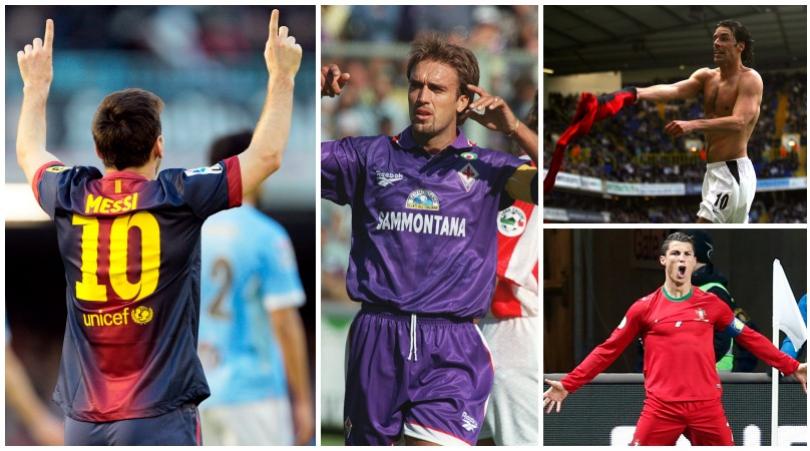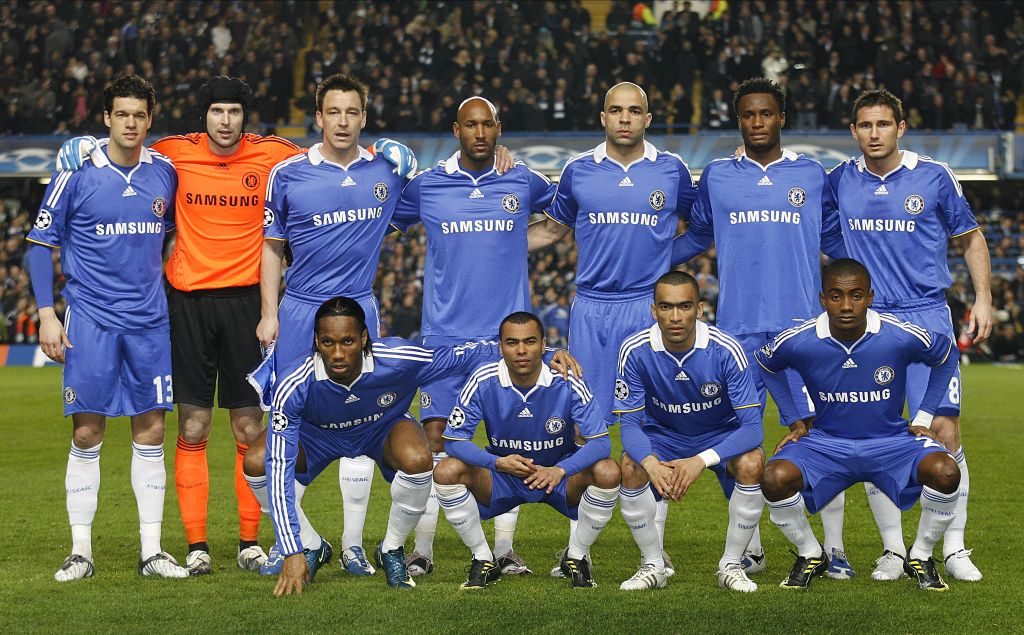Better than Messi, Pele, Muller: How Cristiano Ronaldo's scoring stacks up
The Portuguese has broken Real Madrid's goalscoring record after notching 324 goals in 310 games for Los Blancos. FFT's Chris Flanagan looks at how Ronny’s strike rate compares to other greats...
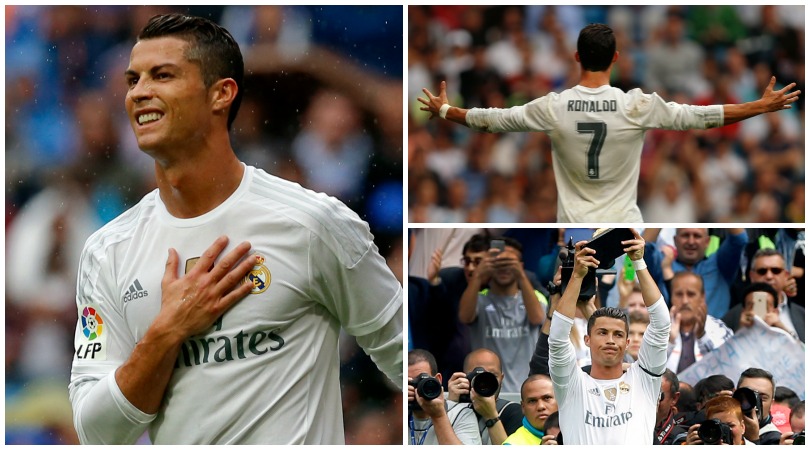
Six years. That's all Cristiano Ronaldo needed to break Real Madrid's goalscoring record.
Greats of the game have filed in and out of the Bernabeu for more than a century, some devoting pretty much their whole career to scoring for a club that claims to be the world's biggest. Real Madrid's net-busting record is not supposed to be easy to break, but Ronaldo has turned up and scored more than anyone else in history within the space of just six years.
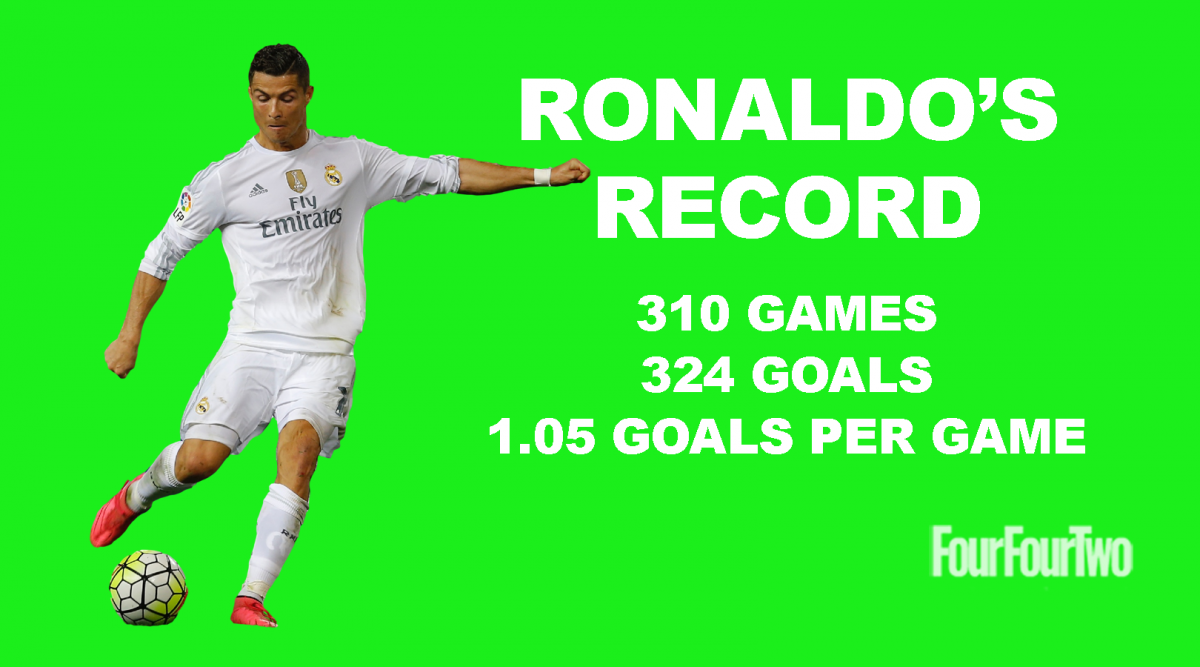
That alone is indicative of how prolific he’s been: the Portuguese has played 310 games for Madrid, but already he’s hit 324 goals – a strike rate of 1.05 goals per game.
Lionel Messi doesn’t even come close at Barcelona, his 418 goals coming in a positively pedestrian 493 matches (0.85 goals per game). Much of that is down to the fact that he has been at the Nou Camp from the start of his career, when he was still learning and not as prolific as he is now. Ronaldo was already on peak form when he moved to the Bernabeu.

The goal what done it for Ronaldo against Levante... and a decent one at that
Even Alfredo Di Stefano, now third on Real's all-time scoring list, couldn’t compete with Ronaldo's strike rate either; his 307 goals came in 396 matches, at 0.78 goals per game.
Pele did score 1,088 times for Santos – fairly impressive, admittedly (if true) – but needed 1,115 games to do it (0.98 goals per game). Gerd Muller struck 566 times in 607 games for Bayern Munich, at 0.93 goals per game.
Get FourFourTwo Newsletter
The best features, fun and footballing quizzes, straight to your inbox every week.
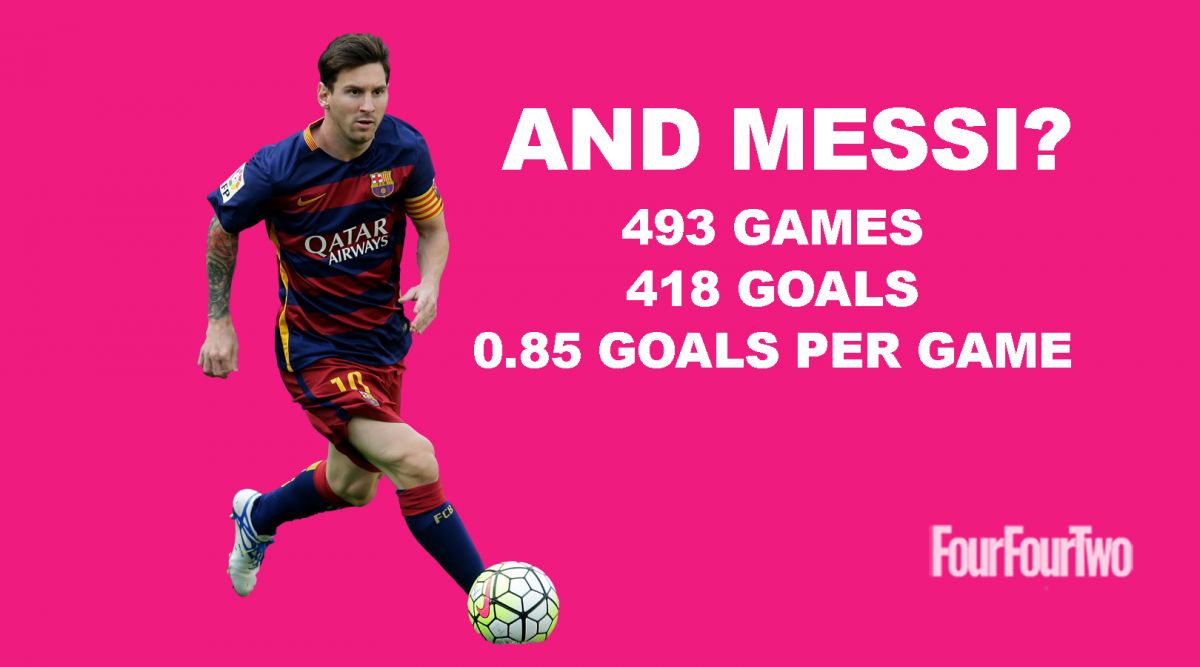
Ronaldo isn’t the only club record holder to have scored consistently at more than a goal a game, though. Some were even more prolific than him...
Josef Bican (Slavia Prague)
Ronaldo was truly nothing compared to Bican, who scored an amazing 395 goals in only 217 appearances for Slavia Prague, at a terrifying rate of 1.82 per game.
Slavia fans once unveiled a banner with an image of Chuck Norris declaring 'Only Bican has scored more goals than me!'. To be honest, we're not sure how many goals Chuck Norris actually scored. David Norris probably bagged more in truth, but he's a lot less famous in Prague.
Anyway, Chuck Norris or David Norris, we think the point of the banner was to illustrate the fact that Bican was quite good. And good he was.
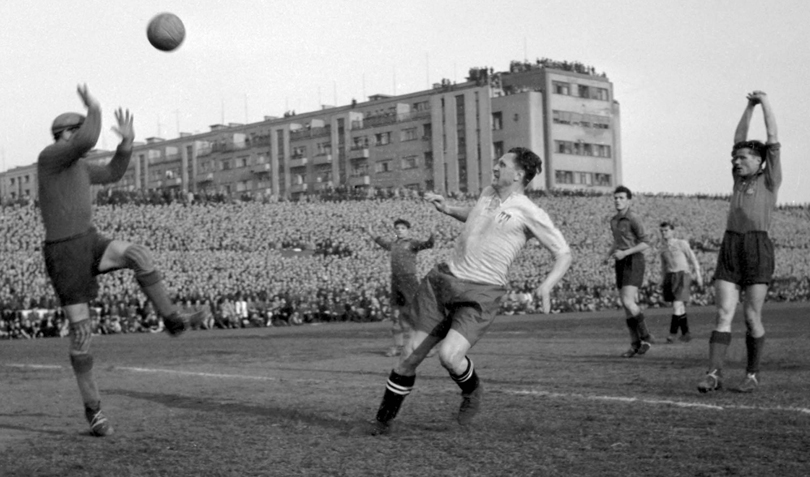
Born in Vienna and nicknamed Pepi (presumably not after the easily angered Real Madrid defender), Bican was a member of the Austrian Wunderteam of the 1930s but left for Czechoslovak side Slavia in 1937 after Adolf Hitler's Nazi party took over his homeland.
In 11 years at Slavia, Bican scored seven goals in a match three times and was Europe's leading striker for five consecutive seasons. His achievements have been attributed in part to the fact that the top league in Czechoslovakia was significantly weakened during the Second World War, but Bican could reportedly run 100 metres in 10.8 seconds – as fast as many of the top sprinters of the time – and his finishing skills were legendary (it was said that he converted 19 out of 20 chances that came his way).
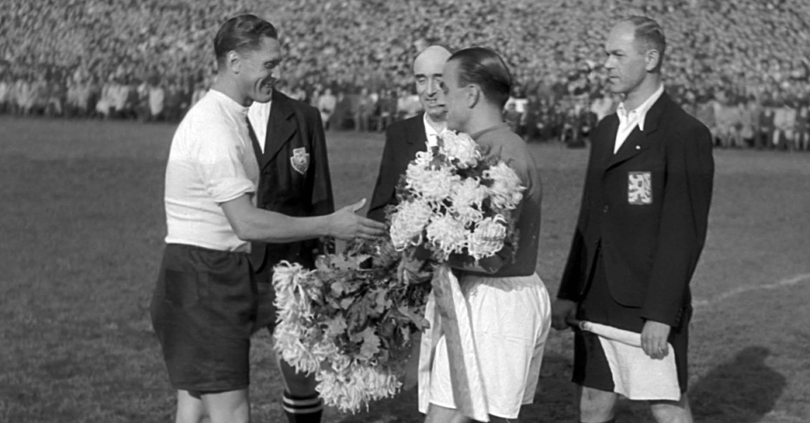
Thousands would attend Slavia training sessions to witness Bican's party trick, which involved placing empty bottles on top of a crossbar and attempting to hit as many as he could from 20 yards. The Austrian’s success was aided by a supportive family: in his youth career, his mother was so enthusiastic that she once raced onto the pitch after her son was fouled and hit the opponent with an umbrella.
The forward once claimed that he scored 5,000 goals during his career, although given that would have involved scoring 185 goals in each of his 27 years in the game, it's probably best to treat that assertion with a pinch of salt. He is officially credited with 643, and his legend lives on at Slavia.
Fernando Peyroteo (Sporting)
Porto must have rued the day in 1937 that a teenage Peyroteo turned down their lucrative contract and chose to play for Sporting instead. Twelve years later the forward had racked up a reported tally of 635 goals in 393 appearances, at a rate of 1.62 per game. In 1942, he scored nine times in a single game against Leca. Six years later, he netted eight against Boavista. He scored five goals in a game on 12 separate occasions.
Arguably his most impressive performance was in a 1948 title decider against Benfica, though, when Sporting needed to win by three clear goals to secure the league. Peyroteo battled on with flu to score four times, and Sporting were champions.
Born in Angola, Peyroteo was known as 'the Stradivarius' as one of Sporting's 'Five Violins' – a quintet that also included Albano, Jesus Correia, Jose Travassos and Manuel Vasques.
He proved a slightly less successful coach, however: put in charge of Portugal in 1961, he lost 4-2 to Luxembourg in only his second match and was relieved of his duties.
Eusebio (Benfica)
By the slenderest of margins, Eusebio amassed his 474 goals at a slightly quicker rate than Ronaldo, in 440 appearances. That's 1.07 goals per game.
Eusebio was actually recommended to Sao Paulo after impressing as a teenager in Mozambique, the land of his birth. But the Brazilian side decided not to sign him, which doesn't look like the wisest decision in hindsight.
The forward moved to Portugal instead – controversially, to Benfica rather than Sporting, having previously played for their feeder club Sporting Clube de Lourenco Marques. Benfica were so fearful of Sporting hijacking the deal that they initially sent Eusebio to the Algarve for 12 days, code-naming him Ruth Malosso until the transfer was finalised.
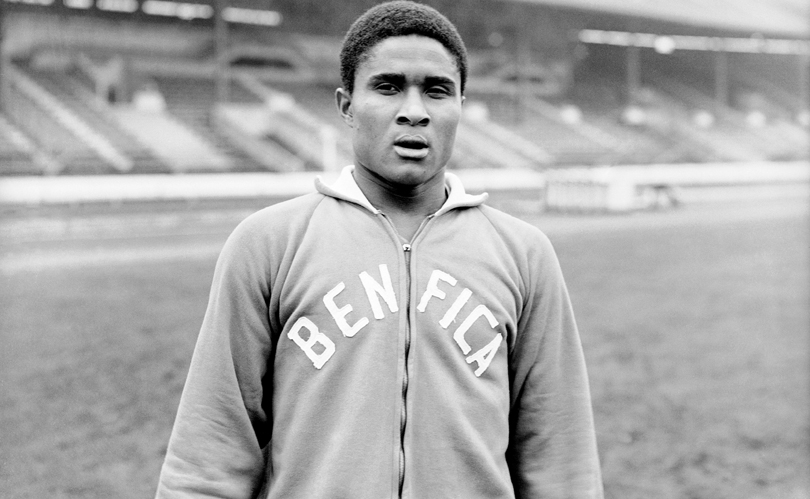
Once the deal was done, Ruth – er sorry, Eusebio – swiftly set about becoming one of the greatest players of all time. He was top scorer in the Portuguese league seven times and European Footballer of the Year in 1962.
Jimmy McGrory (Celtic)
McGrory earned the nicknames of 'the Mermaid' and 'the Human Torpedo' for his scoring feats at Celtic. If those two monikers don't really seem to go together, they make slightly more sense when we tell you that they’re both derived from his tendency to score all of his goals with bullet headers. Presumably he played particularly well in matches at sea too.
McGrory was an unlikely target man given that he was only 5ft 6in tall, but he bagged 395 goals in 378 games for Celtic between 1922 and 1937, at a rate of 1.04 per game (almost identical to Ronaldo’s). His career haul included 55 hat-tricks.
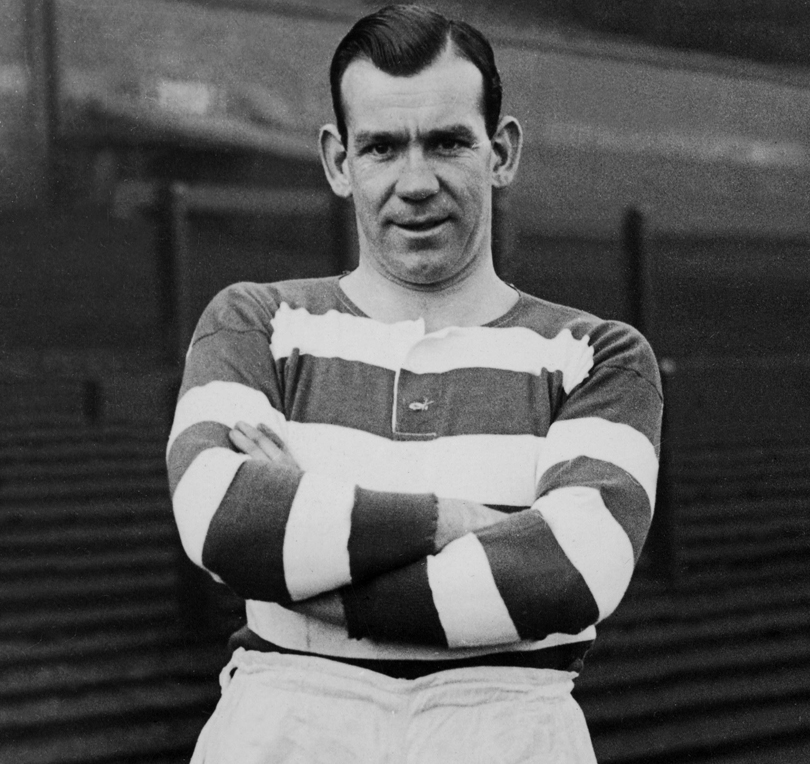
Despite all of this, Celtic actually made him take a pay cut in 1927 after failing in a bizarre attempt to sell the Scot at Arsenal. Celtic accepted a £10,000 bid from the Gunners, which would have been a world record fee, before sending McGrory on what he thought was an all expenses-paid pilgrimage to the Catholic shrine of Lourdes.
He never got as far as France, though, because Celtic had arranged for Arsenal boss Herbert Chapman and chairman Samuel Hill-Wood to meet him as soon as he got off the train in London. Surprised by the ambush, McGrory resisted the north Londoners' advances and insisted he wanted to stay at Celtic.
Ferenc Puskas (Honved)
Puskas didn't manage a goal every game at Real Madrid, where he netted 242 times in 262 appearances, but he did at Honved in his native Hungary. There, the national hero scored 374 goals in 358 matches at 1.04 per match. The club were known as Kispest when Puskas made his debut in 1943, before they were taken over by the army and renamed Honved in 1949.
All players were given a military rank, leading to Puskas's nickname of the Galloping Major. He struck 50 times to establish himself as the top scorer in Europe during the 1947/48 campaign, and helped Honved to five league titles before the Hungarian Revolution of 1956 changed everything.
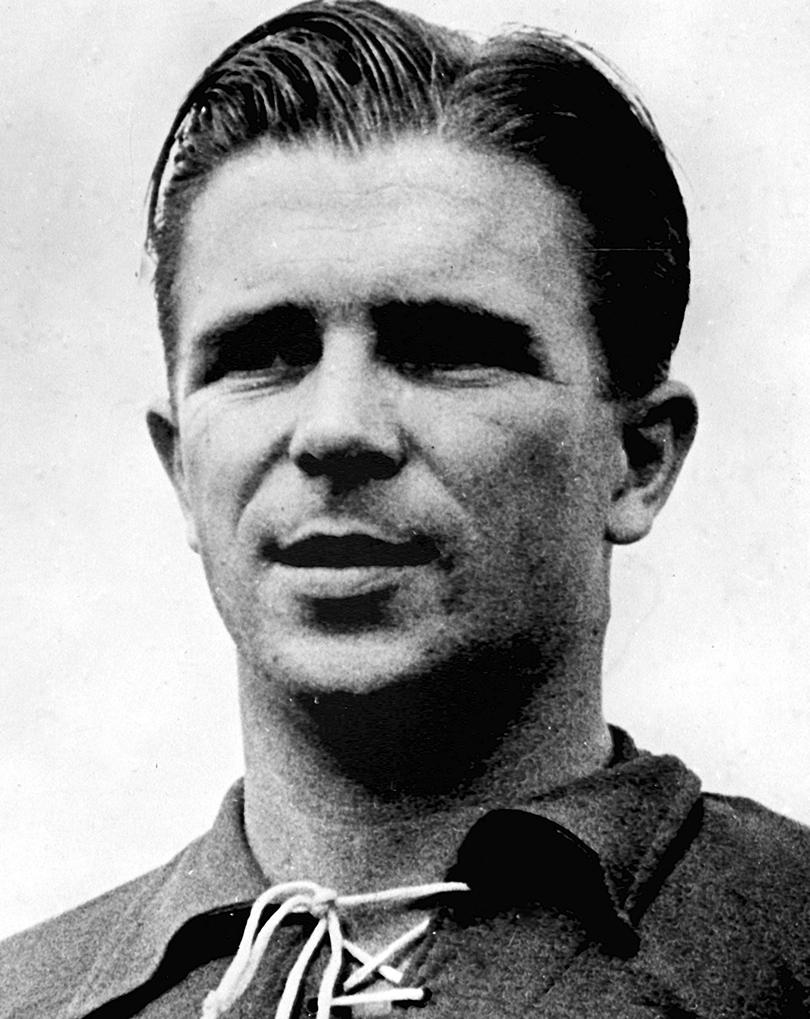
Honved were out of the country at the time for a European Cup tie against Athletic Bilbao and decided not to return, going on a fundraising tour before the team broke up. Puskas never played for Honved again, earning a two-year ban from UEFA after refusing to return to his homeland. When his ban was up, he joined Real Madrid.

Chris joined FourFourTwo in 2015 and has reported from 20 countries, in places as varied as Jerusalem and the Arctic Circle. He's interviewed Pele, Zlatan and Santa Claus (it's a long story), as well as covering the World Cup, Euro 2020 and the Clasico. He previously spent 10 years as a newspaper journalist, and completed the 92 in 2017.
